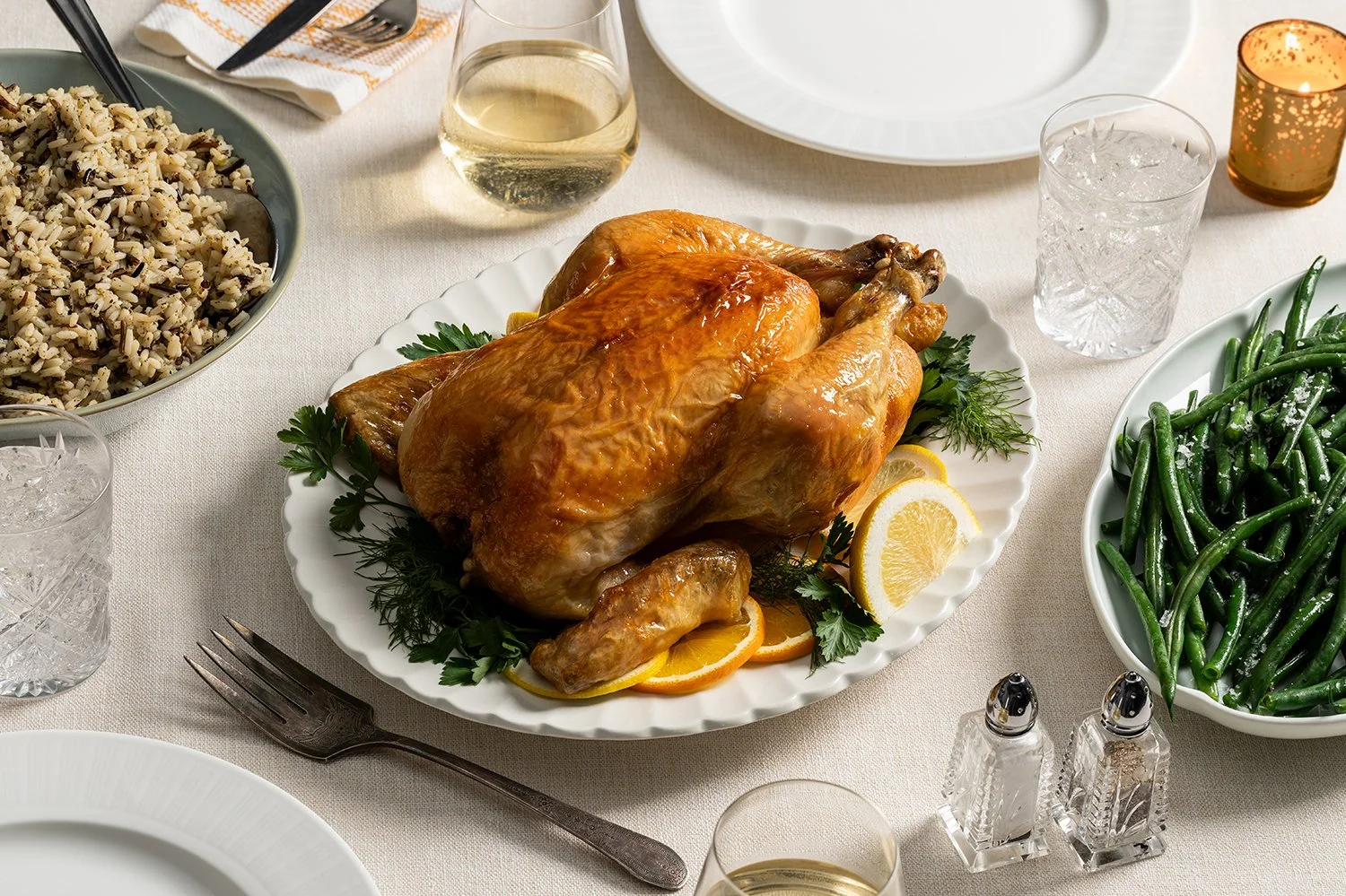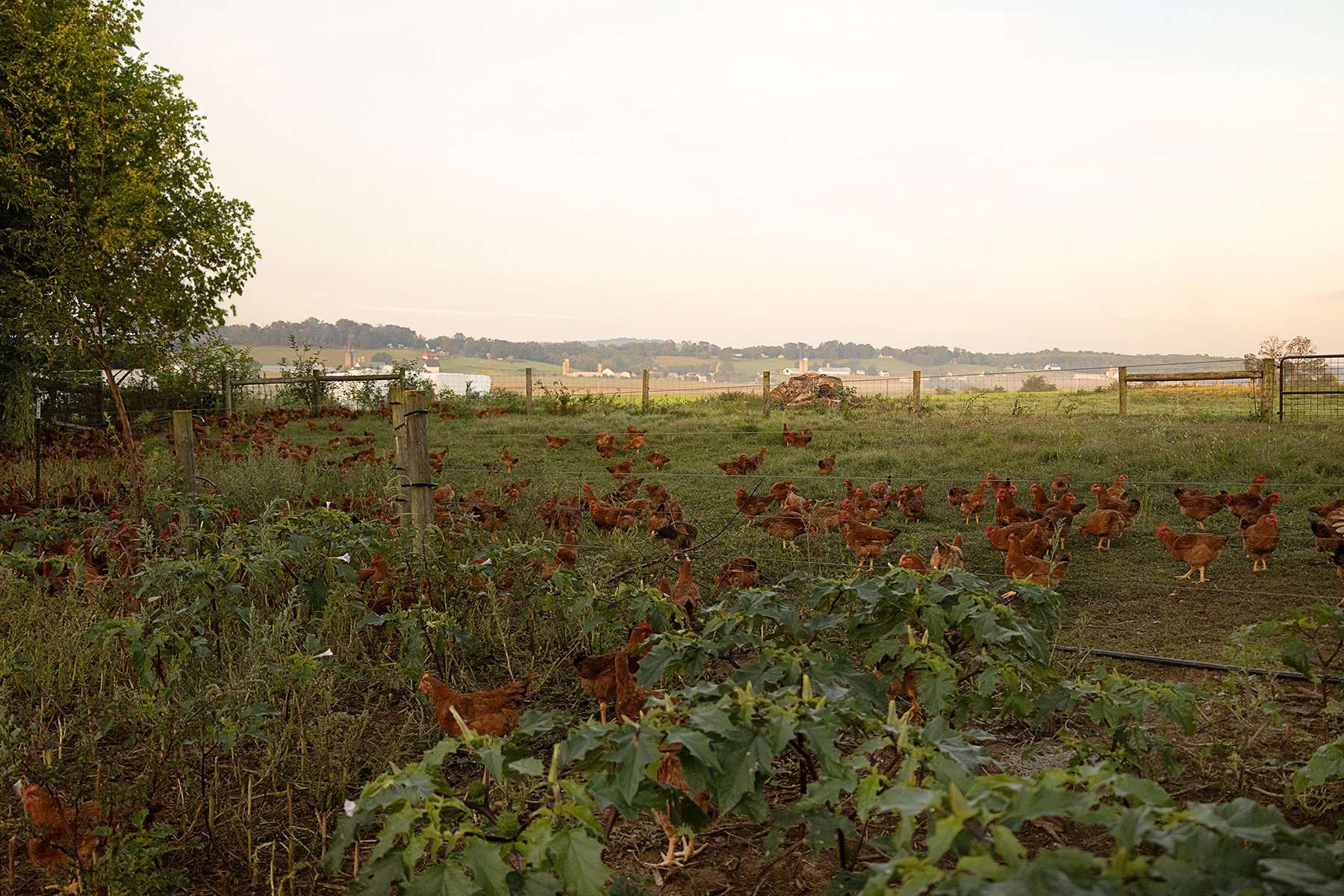
Grown As Promised.®
“Grown on family farms in Lancaster County, Pennsylvania, our exclusive, heritage chickens are grown as promised to the highest animal welfare standards in the industry. They freely roam in pastures and are raised at a slower pace. Our all-natural chickens are also air-chilled instead of being chilled in water with added chemicals. This level of care and attention to every detail guarantees a succulent, tender product that is full of flavor.” -Mike Charles, founder & 6th generation chicken farmer

“BEYOND” Organic
One question we get a lot is “Why aren’t your chickens organic?” We believe our pasture-raised chickens are “BEYOND” organic!
Here’s why:
Heritage Breed
Our chickens are a heritage breed that we carefully selected from genetics in France. Exclusive to LaBelle Patrimoine, this breed is designed to grow slower for optimum taste and texture. Thanks to the old-world breed and traditional growing practices, our customers often tell us our chicken tastes like their grandmother’s chicken used to taste.
Pasture-Raised
Our pasture-raised chickens have daily access to pasture, foraging for bugs and insects, eating plants, and, well, just being chickens!
Slow-Grown
Our chickens are grown twice as long as a conventional chicken. This allows for the chickens to develop more naturally, resulting in healthier and happier birds. Conventional chicken breeds are grown fast and for size, resulting in visible fat deposits (“white striping”), which ours does not have!
Air-Chilled
A lot of organic chicken is water-chilled, which involves dunking the chicken in a chlorine bath, whereas we air-chill our chicken which doesn’t add extra water, has no chlorine, and locks in the flavor using only cold air!
Local Grain
In addition to foraging for bugs and insects, our chickens are given a grain mixture that is sourced right from our local community. Sometimes these crops are being grown right on the same farms where our chickens are raised! In contrast, a majority of organic feed is flown thousands of miles from other countries.
All of these factors add up to what we believe is the best chicken commerically available on the market today! So while organic chicken IS given organic grains, it is simply a conventional breed bred to grow fast in crammed, indoor conditions.
Our chickens are Step 4 certified by the Global Animal Partnership (the highest in the industry) and third-party auditors verify our full compliance. This meets or exceeds all requirements of the Better Chicken Commitment, which ensures all chickens have access to outdoor shelter, shade, a dust bathing area, and the freedom to forage in the open air.
In combination with our G.A.P. certification, we are one of only three suppliers meeting the over 100+ standards required for the Better Chicken Project. We are also currently implementing multi-stage controlled atmosphere stunning at our facility which will meet the Better Chicken Project’s standards by 2027.
We are one of only five suppliers committed to the Better Chicken Commitment. We are using a higher-welfare breed approved by the Better Chicken Commitment and have verified this through GAP's Better Chicken Project.
This is a system in which chickens are grown on managed pasture, and farm and processing waste are composted and returned to the soil to improve its health. This approach underscores our dedication to responsible agriculture and its positive impact on soil health, water management, pasture biodiversity, and carbon reduction. (*Use of the claim “regeneratively raised” on our labels is approved by USDA)










